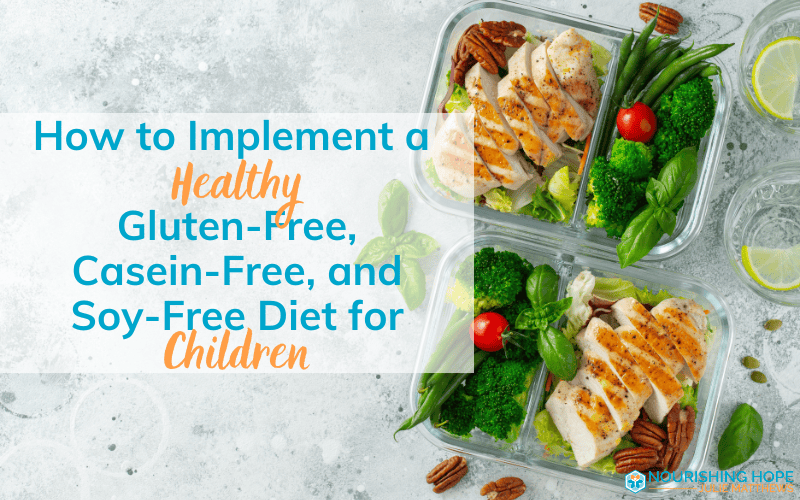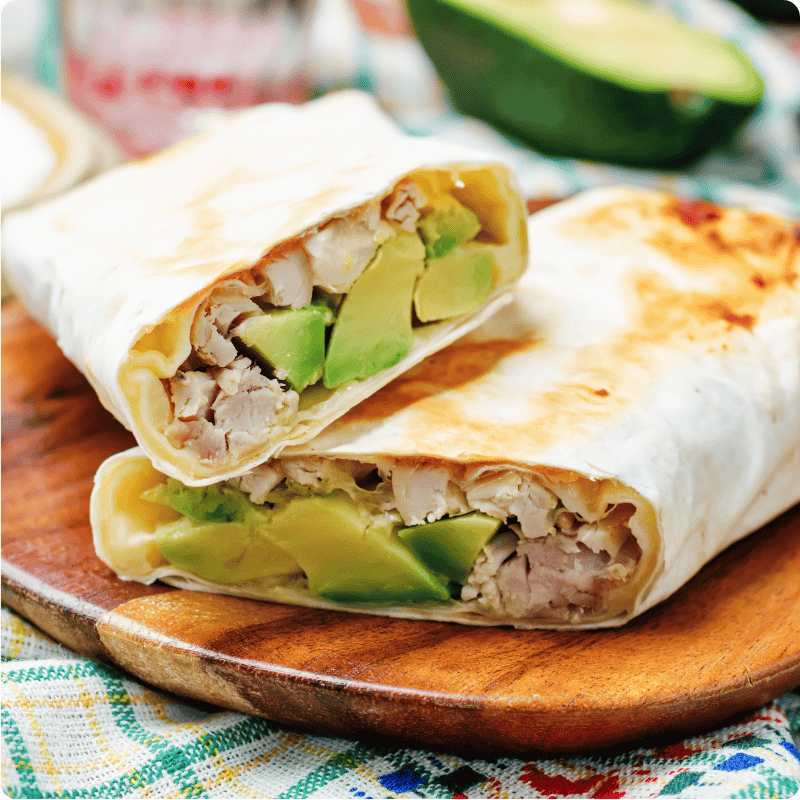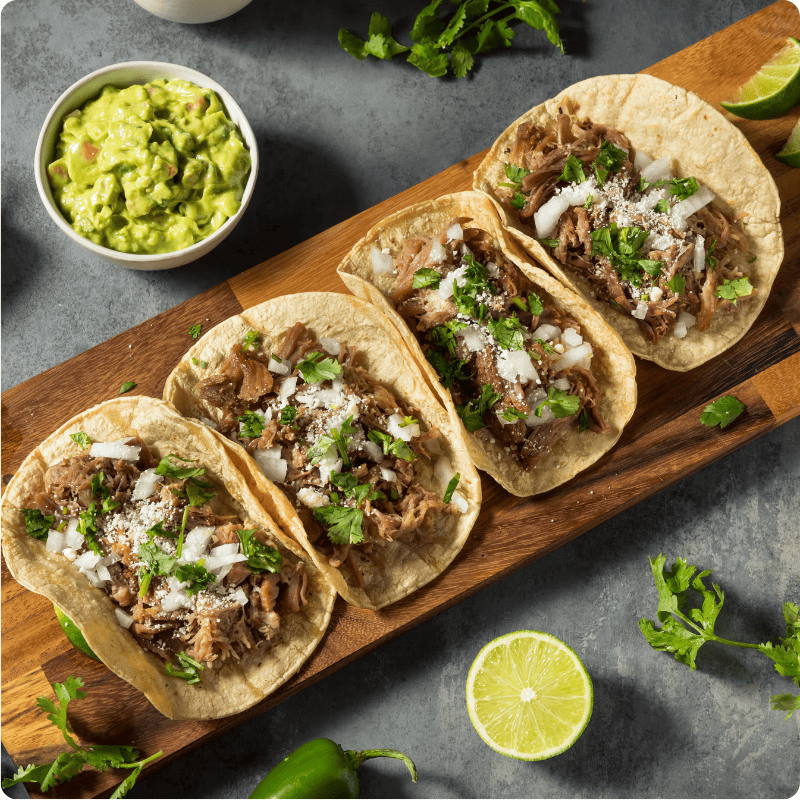
Transitioning your child to a gluten-free, casein-free, and soy-free (GFCFSF) diet may seem like a daunting task, but with proper knowledge and planning, it can be a smooth and rewarding journey. Here’s a comprehensive guide on how to implement this diet, including a list of foods to include and avoid, meal ideas, a kid-friendly meal plan, instructions on how to implement it, common pitfalls and solutions, and birthday party options.
5 Tips for Successfully Implementing a GFCFSF Diet
The GFCFSF diet eliminates gluten (found in wheat, barley, and rye), casein (a protein found in dairy products), and soy. This diet is often recommended for children with autism, ADHD, or food sensitivities, as these proteins can sometimes exacerbate symptoms.
If you want to understand more of the science and research, I wrote an article on the science of why a gluten-free and casein-free diet is beneficial. I also participated in two studies on the gluten-free and casein-free diet including this study on a “Comprehensive Nutritional and Dietary Intervention for Autism Spectrum Disorder (ASD)” and one on “Ratings of the Effectiveness of 13 Therapeutic Diets for ASD.”
Foods to Include and Avoid
Gluten-Free, Casein-Free and Soy-free Foods to Include
Include Fresh Vegetables:
- Carrots
- Broccoli
- Red bell peppers
- Cucumbers
- Cherry tomatoes
- Snap peas
- Lettuce
- Green beans
- Zucchini
- Sweet potatoes
- Cauliflower
- Celery
- Butternut squash
- Brussels sprouts
- And many more
- Frozen vegetables without additives
Include Fresh and Frozen Fruit:
- Apples
- Bananas
- Strawberries
- Blueberries
- Grapes
- Oranges
- Watermelon
- Pineapple
- Mango
- Peaches
- Cherries
- Raspberries
- Pears
- Kiwi
- Plums
Protein to Include:
- Beef
- Chicken
- Turkey
- Pork
- Fish and seafood
- Eggs (if tolerated)
Nuts, Seeds, Legumes to Include:
- Nuts (almonds, cashews, walnuts, hazelnuts, etc.)
- Nut butters
- Seeds (sunflower seeds, pumpkin seeds)
- Legumes (beans, lentils, chickpeas)
Grains and Starches to Include:
- Rice (brown, white, wild)
- Quinoa
- Potatoes
- Gluten-free oats
- Gluten-free pasta
- Gluten-free flours (rice, tapioca, potato starch,
- almond, coconut, etc.)
- Gluten-free bread, English muffins, muffins, baked goods
- Corn tortillas
- Rice cakes
- Gluten-free pretzels
- Tortilla chips
- Potato chips
- Popcorn
- Veggie chips
- Gluten-free energy bars
Dairy Alternatives to Include:
- Almond milk, coconut milk, rice milk
- Dairy-free cheese (made from nuts or other dairy-free sources)
- Coconut yogurt
- Cashew yogurt
- Coconut ice cream
- Non-dairy pudding
Oils and Fats Include:
- Olive oil
- Coconut oil
- Avocado oil
- Casein-free and soy-free butter alternative
Beverages to Include:
- Water
- Herbal teas
- Freshly squeezed juices
Foods to Avoid
Avoid Gluten-Containing Grains:
- Wheat
- Barley
- Rye
- Triticale
- Spelt
- Kamut
- Farro
- Farina
- Durum
- Semolina
- Bulgur
- Einkorn
- Emmer
Avoid Foods That Contain Gluten:
- Bread (wheat bread, rye bread, etc.)
- Pasta (spaghetti, macaroni, etc.)
- Breakfast cereals (wheat-based, malt sweetened)
- Baked goods (muffins, cookies, cakes)
- Crackers
- Pizza crust
- Pita bread
- Pancakes
- Waffles
- Doughnuts
- Pastries
- Pretzels
- Bagels
- Graham crackers
- Breadcrumbs
- Couscous
- Chicken nuggets
- Fish sticks
- Corndogs
- Breaded and fried foods
- Flour tortillas
- Stuffing
- Chocolate with cookie/pretzel pieces
- Some candy
- Date pieces (dusted with flour)
- Malt beverages
- Soy sauce
- Seitan
- Malt vinegar
- Barley malt
- Brewer’s yeast
Avoid Foods That May Contain Gluten:
- French fries (cross-contamination)
- Flavored chips
- Flavored nuts
- Processed cheese
- Processed meats
- Salad dressings
- Sauces and gravies
- Meat substitutes
- Veggie burgers
- Canned soups
- Some spice blends
- Rice mixes
- Instant coffee and drinks
- Ice cream (some brands)
- Pudding mixes
- Energy/sports bars
- Imitation crab
Avoid Foods That Contain Casein:
- Milk
- Cheese
- Butter
- Yogurt
- Cream
- Ice cream
- Whipped cream
- Half-and-half
- Cream cheese
- Cottage cheese
- Sour cream
- Kefir
- Buttermilk
- Powdered milk
- Milk chocolate
- Pudding
- Custard
- Cheesecake
- Sherbet
- Caseinates (in non-dairy cheese and products)
- Creamy soups
- Ranch dressing (and others dairy-based)
- Processed cheese
- Cheese spreads
- Whey protein powders
- Some margarines
- Cream sauces
- Coffee creamers
- Cheese crackers
- Cheese-flavored snacks
Avoid Foods That May Contain Casein:
- Non-dairy creamers
- Processed deli meats
- Breaded foods
- Some canned fish
- Artificial butter flavor
- Some protein/sports bars
- Mashed potatoes
- Some cereals
- Hot dogs
- Salad dressings
- Flavoring agents
- Hydrolyzed vegetable protein
- Soup mixes
- Chewing gum
Avoid Foods That Contain Soy:
- Soy sauce
- Tofu
- Edamame
- Miso
- Tempeh
- Soy milk
- Soy ice cream
- Soy cheese
- Soy yogurt
- Soy flour
- Soy lecithin
- Soy nuts
- Textured vegetable protein (TVP)
- Some vegetable broths
- Soy burgers
- Energy bars (soy-based)
- Soy protein isolate
- Soy protein powder
- Soy-based shakes
- Soy-based baby formulas
- Some canned tuna
- Soy oil
- Certain baked goods
- Some margarine
- Vegan mayonnaise
- Soy creamers
- Soy-based dressings
- Soybean paste
- Soy crisps
- Some chocolates
Implementing the GFCFSF Diet
Gradual Transition
The most common way is to start by eliminating one food group at a time. For example, gradually replace casein, then gluten, and finally soy.
Tips for Success
- Reading Labels: Get into the habit of reading food labels carefully to ensure products do not contain gluten, casein, or soy.
- Home Cooking: Cook meals at home as much as possible to have control over ingredients.
- Meal Planning: Plan your meals for the week to ensure you have all necessary ingredients and avoid last-minute temptations.
- Involve Your Child: Get your child involved in meal preparation to make them more excited about the new diet.
Meal Ideas
Breakfast Ideas

Smoothie Bowls
Blend frozen fruits with almond milk and top with gluten-free granola and fresh berries.

Scrambled Eggs
with Vegetables
Sauté your child’s favorite vegetables and scramble with eggs.

Overnight Oats
Mix gluten-free oats with almond milk and a touch of honey. Let sit overnight and top with fresh fruits in the morning.
Lunch Ideas

Chicken and Avocado Wrap
Use gluten-free wraps, filled with grilled chicken, avocado, lettuce, and dairy-free cheese.

Beef Tacos
Assemble tacos with ground beef, lettuce, tomatoes, and casein-free cheese in corn tortillas.

Prepare gluten-free and dairy-free chicken nuggets with a side salad and cup of blueberries or their favorite fruit.
Dinner Ideas

Baked Salmon with Sweet Potato Fries
Season salmon with herbs and bake. Serve with oven-baked sweet potato fries.

Spaghetti Squash with Meat Sauce
Use spaghetti squash as a pasta substitute and top with homemade meat sauce.

Chicken Stir-Fry
Sauté chicken with a mix of colorful vegetables, using coconut aminos instead of soy sauce.
Snacks

Fruit and Nut Mix
A simple mix of dried fruits and nuts.

Veggie Sticks with Hummus
Carrot, celery, and cucumber sticks with a side of hummus.

Dairy-Free Yogurt with Berries
A quick and easy snack option.
Gluten-Free Casein-Free (GFCF) Kid-Friendly Meal Plan
Breakfast:
- GFCF Pancakes with maple syrup and fresh fruit.
- Smoothie with almond milk, banana, berries, and spinach.
- GFCF Cereal with almond milk and sliced bananas.
- Scrambled Eggs with a side fruit and GFCF toast.
Lunch:
- GFCF Chicken Nuggets with carrot sticks and apple slices.
- Turkey and Avocado Lettuce Wraps with a side of cherry tomatoes.
- GFCF Pizza with a side salad.
- GFCF Macaroni and Cheese with steamed broccoli.
- GFCF Grilled Cheese Sandwich made with GFCF bread and vegan cheese, served with a side of grapes.
Snack:
- GFCF Granola Bars.
- Hummus with cucumber slices and gluten-free crackers.
- Apple Slices with almond butter.
- Rice Cakes with sunflower seed butter and bananas.
Dinner:
- GFCF Spaghetti with marinara sauce and squash meatballs (using gluten-free breadcrumbs) and a side of mixed vegetables.
- GFCF Baked Chicken Tenders with sweet potato fries and green beans.
- Beef Stir-Fry with vegetables and gluten-free soy sauce, served over rice.
- GFCF Quesadillas made with corn tortillas and vegan cheese, served with a side of black beans and salsa.
- GFCF Hamburger with a gluten-free bun, lettuce, tomato, and a side of baked potato wedges.
Dessert:
- Fruit Salad with a drizzle of honey.
- GFCF Chocolate Chip Cookies.
- Frozen Banana Bites dipped in dark chocolate (dairy-free).
- Coconut Milk Ice Cream.
Avoiding Cross-Contamination of Gluten and Casein
Preventing cross-contamination in your kitchen is essential to maintaining a strict gluten-free, casein-free, and soy-free diet for your child, even a few crumbs or tiny amount can cause reactions in some individuals. With a few simple steps and some organization, you can create a safe cooking environment. Of course, if your whole family is GFCF and you don’t have any gluten and casein from your kitchen, you can skip most of this. Here are some practical tips to help you get started:
Kitchen Equipment and Utensils
- Separate Cutting Boards: Use separate cutting boards for gluten-free foods and foods containing gluten. Label each board to prevent confusion.
- Dedicated Toaster: Have a separate toaster for gluten-free bread. Gluten particles can get stuck in a toaster, contaminating gluten-free bread.
- Cookware and Utensils: For non-porous items like pots, pans, and metal utensils, thorough washing with hot, soapy water is usually sufficient to prevent cross-contamination. For porous items like wooden spoons and cutting boards, it’s best to have separate, dedicated ones for gluten-free and casein-free cooking.
Storage Practices and Cleaning Practices
- Containers: Store gluten-free flours, grains, and other foods in airtight containers to keep them safe from gluten-containing crumbs and particles. Clearly label all gluten-free and casein-free food items.
- Thorough Cleaning: Clean all kitchen surfaces, including countertops, cutting boards, and utensils, thoroughly before preparing gluten-free and casein-free meals.
- Hand Washing: Wash your hands thoroughly before handling gluten-free and casein-free foods, especially after touching gluten-containing items.
Cooking and Serving
- Separate Preparation Areas: Designate separate areas in the kitchen for preparing gluten-free and casein-free meals. This minimizes the risk of cross-contact with gluten or casein.
- Careful Serving: Use separate serving utensils for gluten-free and casein-free dishes. Avoid double-dipping utensils between dishes to prevent contamination.
- Grill and Griddle Care: If using a grill or griddle, ensure it is thoroughly cleaned before cooking gluten-free foods. Consider using foil or a grill mat to create a barrier.
By following these simple steps and staying organized, you can significantly reduce the risk of cross-contamination and ensure a safe and healthy diet for your child. Remember, consistency is key, and over time, these practices will become second nature.
Common Pitfalls and Solutions
- Pitfall: Accidental Gluten/Casein/Soy Consumption:
- Solution: Educate all family members, caregivers, teachers, and therapists about the diet. Keep a list of safe foods and brands.
- Pitfall: Limited Food Choices:
- Solution: Explore new recipes and food blogs dedicated to GFCFSF diets to diversify your meal options.
- Pitfall: Social Situations:
- Solution: Inform hosts about your child’s dietary needs ahead of time and bring safe snacks or meals to events.
Birthday Party Options
Birthday parties are probably one of the biggest questions and challenges associated with a gluten-free casein-free diet. They can really derail the diet and best laid plans. Fortunately, it’s not difficult. Whether you’re planning a birthday party or attending one, your child can stick with their GFCF diet and have the day be fun and delicious. Here are some ideas to ensure that all the kids enjoy the celebration without compromising on taste or excitement. You can either make these for your child to bring with them, or make them for your own party guests. And I guarantee you, they won’t know the difference!

This is a gluten-free and casein-free cake we made for my daughter’s 12th birthday. This cake is free of artificial food dye, instead try natural food coloring or dehydrated strawberry crumbles (as shown here).
- GFCFSF Cake: Bake a delicious cake using gluten-free flour, dairy-free milk, and a soy-free recipe. Decorate with a dairy-free frosting, that’s made with natural food coloring.
- Snacks: Provide a variety of GFCFSF snacks like veggie sticks, fruit skewers, and gluten-free crackers, even dark chocolate dipped pretzels.
- Pizza: Make or order a gluten-free pizza with dairy-free cheese and a variety of toppings.
- Games and Activities: Focus on fun activities and games that don’t center around food to keep the party enjoyable for all kids.
Conclusion
Implementing a GFCFSF diet for your child may seem challenging at first, but with careful planning and a positive attitude, it can lead to significant health benefits. By focusing on wholesome, nutritious foods and getting creative with meal planning, you can ensure your child enjoys a variety of delicious and healthy meals. Remember to be patient with yourself and your child during the transition, and don’t hesitate to seek support from online communities or nutrition experts if needed.




0 Comments